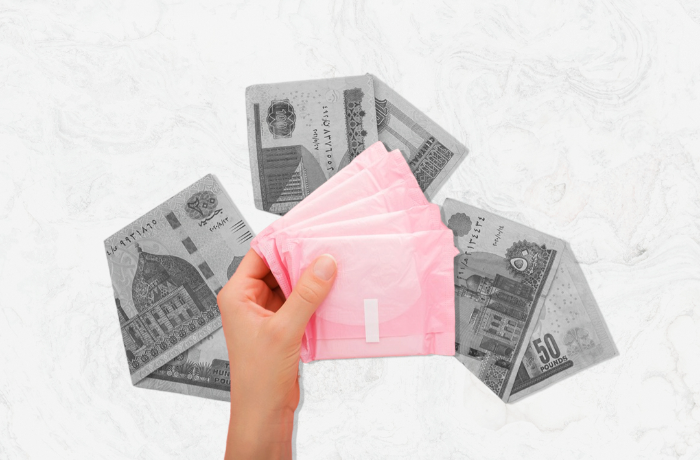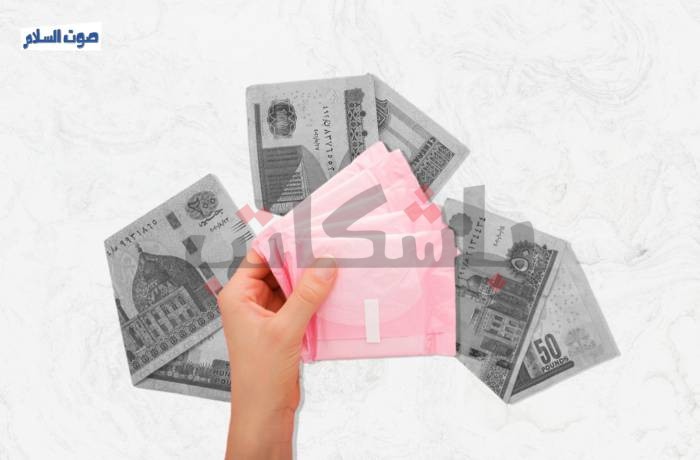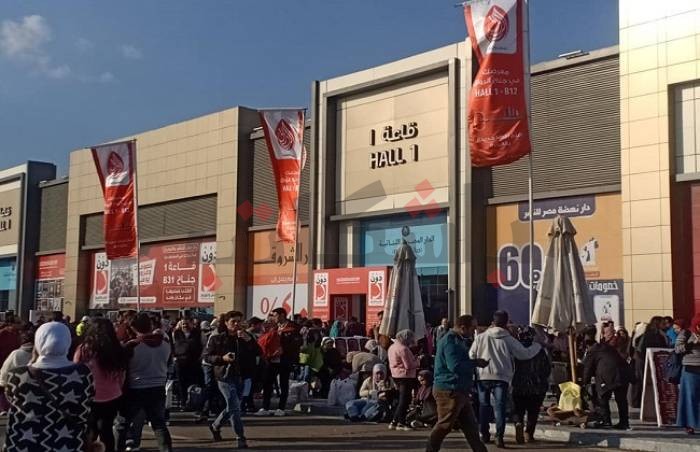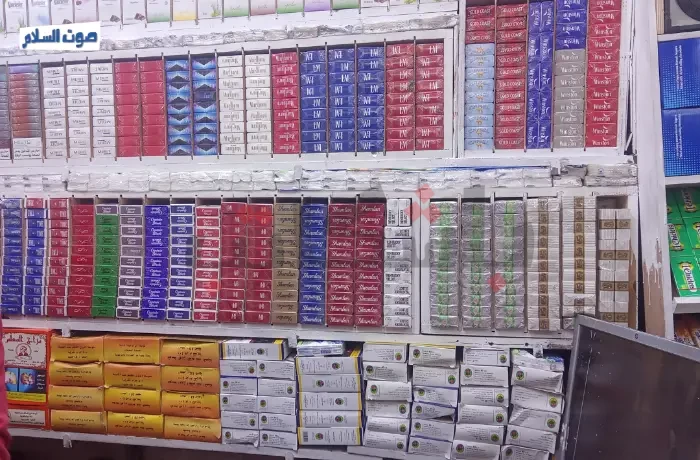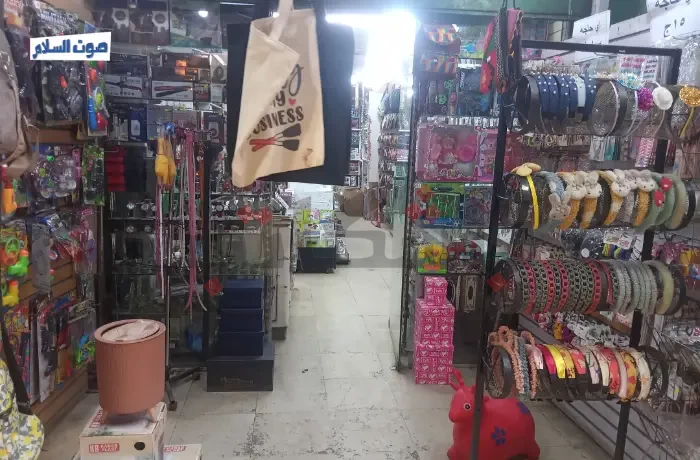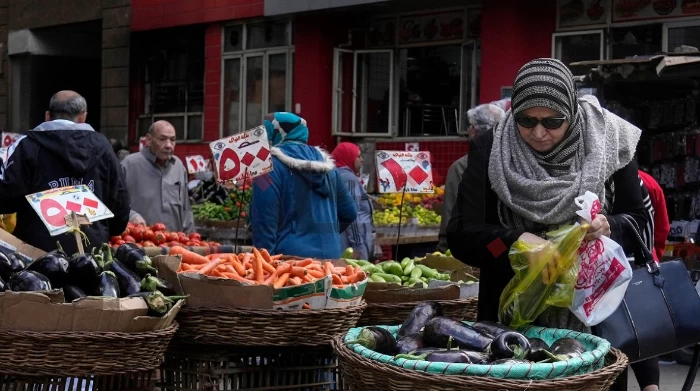The 21-years-old university student, Ibtesam, pseudonym, had to cut back on the number of sanitary pads she buys each month. This has forced her to use a single pad for over four hours, which is considered unhealthy by World Health Organisation standards. Due to the high cost of sanitary pads, Ibtesam has no other option.
A year ago, Ibtesam used to buy two packets for 30 EGP, which lasted her for more than one menstrual cycle, giving her a sense of security, knowing she could use more than one pad a day. However, today’s prices have forced her to buy a 14-pad packet that lasts her for only one cycle.
To make matters worse, Ibtesam’s monthly salary of 3,000 EGP is insufficient to keep up with rising prices. Her income must cover her daily expenses and studies, so when she gets her period, she not only endures the typical physical and psychological discomforts, but also faces financial stress and worries about affording sanitary pads throughout her menstrual cycle, stripping her of her sense of security.
Ibtesam is not alone in facing this challenge. Every 28 days, all Egyptian women of childbearing age are shocked by the high prices of sanitary pads. This forces them to cut down on the number of pads they use, leading to period poverty and posing a threat to their health.
“The menstrual cycle involves a series of monthly changes in the body to prepare for pregnancy. Each month, one of the ovaries releases an egg, in a process called ovulation.”
Period Poverty, a term introduced by UNICEF in its 2021 report, refers to the difficulty in accessing menstrual hygiene products like pads. Even two years after the term was coined, many women still struggle to afford these essential items.
Double Rise
In January 2023, the price of sanitary pads in Egypt nearly doubled, rising from 15 EGP to 30 EGP. Prices continued to rise throughout the year, reaching 40 EGP for a 14-pad pack by December, according to average prices in the markets.
This represents a 100% increase in the cost of local sanitary pads from the start to the end of 2023. Meanwhile, the average price for imported pads, which come in packs of 10, is 45 EGP.
Amid ongoing discussions about the disparity between Egypt’s official dollar rate and the black-market rate, along with the availability crisis affecting imports, recently, the price of sanitary pads has surged to over 60 EGP. There are concerns that this increase will persist, with no clear indicators of the crisis’s severity or duration.
Both locally produced and imported sanitary pads have become a source of additional hardship for some women. For instance, the 19-years-old student, Rufaida, pseudonym, cannot switch to a different brand despite the price hike. She explains, “It’s crucial for my health, which is my top priority. My daily life involves university and work, and I can only manage menstruation with this specific product. The price increase strains my limited monthly budget, as I work part-time to accommodate my study schedule.”
Sanitary pads are Rufaida’s top priority when she receives her 1,500 EGP salary. She spends 80 EGP per pack, and due to being forced to wear a single pad for a longer time, she opts for dark-coloured clothing during her period.
Sanitary Pads Are No Luxury
“Tebbi” website, which posts studies and offers online counselling, confirms that a 14-pad packet is not sufficient for women whose menstrual cycles last from 3 days to a week, so they need to use a pad every 4 – 6 hours, so as not to be exposed to skin or reproductive system infections, which may lead to delayed pregnancy.
Changing pads every 4 hours means that every menstrual cycle requires using 6 pads per day. For an average four-day cycle, women need 24 pads, which is nearly two packs minus 4 pads, costing 80 EGP per month. This calculation doesn’t account for cycles lasting a week or longer for some women.
The 23-years-old Jamila, pseudonym, faces the same perplexing calculation each month. She emphasises that sanitary pads are essential, not a luxury, and cannot be reduced or eliminated from her budget. Additionally, she notes that affordable and healthy global alternatives are not available in Egypt.
Jamila, who loves bright colours and has a wardrobe full of them, finds herself unable to wear these clothes as she is forced to wear a single sanitary pad for a long time, “wearing sanitary pads for long hours increases health risks for women, so it’s not a luxury.”
This is demonstrated by the absence of sanitary pads from the list of basic products on the local price portal of the Information and Decision Support Centre. Despite this, Jamila hopes that sanitary pads will eventually be subsidised by the state.
